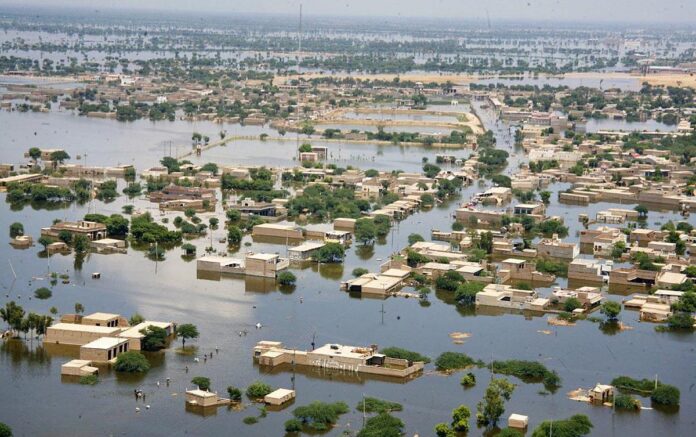The World Bank has pledged $2 billion to support Pakistan’s recovery from the 2022 floods, including $1.55 billion for new reconstruction and resilience projects.
However, disbursement for housing reconstruction in Balochistan has yet to begin, World Bank officials revealed during a recent briefing on flood rehabilitation efforts.
World Bank Country Director Najy Benhassine confirmed that the $2 billion commitment was made during the Donors Conference in Geneva in 2023 to assist Pakistan in addressing the aftermath of the catastrophic floods. The funds are being implemented under a three-pillared strategy focusing on immediate response, reconstruction and rehabilitation, and resilience-building efforts.
So far, $454 million has been mobilized through existing projects, including $277 million for immediate response and $177 million for reconstruction and resilience.
Of the newly allocated $1.55 billion, $213 million is earmarked for reconstruction and resilience efforts in Balochistan, while $500 million each is allocated for housing and infrastructure reconstruction in Sindh, along with smaller amounts for health, social protection, agriculture, and reconstruction in Khyber-Pakhtunkhwa.
Despite the funds being available, officials confirmed that no disbursements have been made for housing reconstruction in Balochistan, citing delays in the implementation process.
According to World Bank officials, only 104 bank accounts have been opened so far for an estimated 250,000 to 280,000 affected individuals. They assured that the implementation structure is in place, though progress has been slower than expected.
In contrast, the disbursement for Sindh is moving more swiftly, with $22 million already released for housing reconstruction and $270 million allocated to flood-affected individuals across various sectors.
The Sindh Flood Emergency Housing Reconstruction Project, backed by $500 million from the World Bank and additional funding from the Asian Development Bank (ADB) and the Islamic Development Bank (ISDB), has seen 935,000 bank accounts opened to date.
The Sindh Flood Emergency Rehabilitation Project ($500 million) aims to restore damaged infrastructure and provide short-term livelihood support in flood-affected areas while strengthening the provincial government’s ability to manage future climate-related challenges.
World Bank officials also emphasized the need for more concessional loans to be made available for low-income countries like Pakistan to better manage climate-related disasters.




